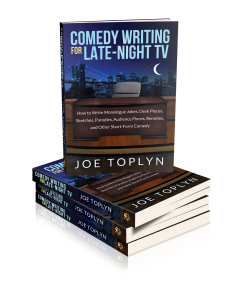
Aspiring writers often hear the poor advice of the Greek philosopher Epictetus, who is quoted as saying, “If you wish to be a writer, write.”
For example, this blogger states, “If you want to be a writer, then all you have to do is write. That’s all there is to it, just start writing.”
I think that’s poor advice because that’s not “all there is” to writing. That’s like telling somebody who has never driven a car before, “If you want to be a driver, just start driving. That’s all there is to it.”
 Writer Stephen King gets much closer to making sense when he recommends this: “If you want to be a writer, you must do two things above all others: read a lot and write a lot.”
Writer Stephen King gets much closer to making sense when he recommends this: “If you want to be a writer, you must do two things above all others: read a lot and write a lot.”
But even Stephen King’s advice is incomplete. Read a lot of what?
This is my advice to aspiring writers:
If you wish to be a writer, start by reading books about how to write.
Here’s why my advice makes sense in the context of writing scripts for TV and film:
- Writing well, like driving well, means following a lot of rules. It just does. Writing great scripts requires knowing how to structure a story, create characters, build compelling scenes, and so much more.
- Figuring out those writing rules by yourself—by reading hundreds of scripts, say—would take a huge amount of time. And most people value their time too much to spend it on reinventing the wheel.
- Taking classes to learn those writing rules would cost a lot more money than buying a few books, even if such classes were available.
- Writing without knowing those rules will result in your writing badly. You will get demoralized by your lack of success. And you will annoy your friends when you give them your bad drafts to read for their feedback.
After you’ve climbed way up the learning curve by reading a few books about how to write, then read something else: actual produced scripts in your favorite genre. Study those real-world examples of how professionals followed the rules that you’ve learned.
Many TV and movie scripts are available for free online, like at Simply Scripts and The Daily Script.
 After you’ve read a lot of how-to books and scripts, then, and only then, write something yourself.
After you’ve read a lot of how-to books and scripts, then, and only then, write something yourself.
With a firm grasp of the writing rules of the road, drive your script safely down entertaining avenues to a satisfying destination instead of into a bad neighborhood or a telephone pole.
Here are a few of my favorite writing how-to books, to get you started:
For TV writers:
The TV Writer’s Workbook, by Ellen Sandler
Writing Television Sitcoms, by Evan Smith
For movie writers:
The Anatomy of Story, by John Truby
Writing Screenplays That Sell, by Michael Hauge
The Writer’s Journey, by Christopher Vogler
Plus my friend Greg DePaul just wrote the book Bring the Funny: The Essential Companion for the Comedy Screenwriter. I’m eager to read it because he’s a hilarious guy with solid screenwriting credentials.
And, of course, if you want to write short-form comedy—the kind you see on late-night TV—get my book, Comedy Writing for Late-Night TV.